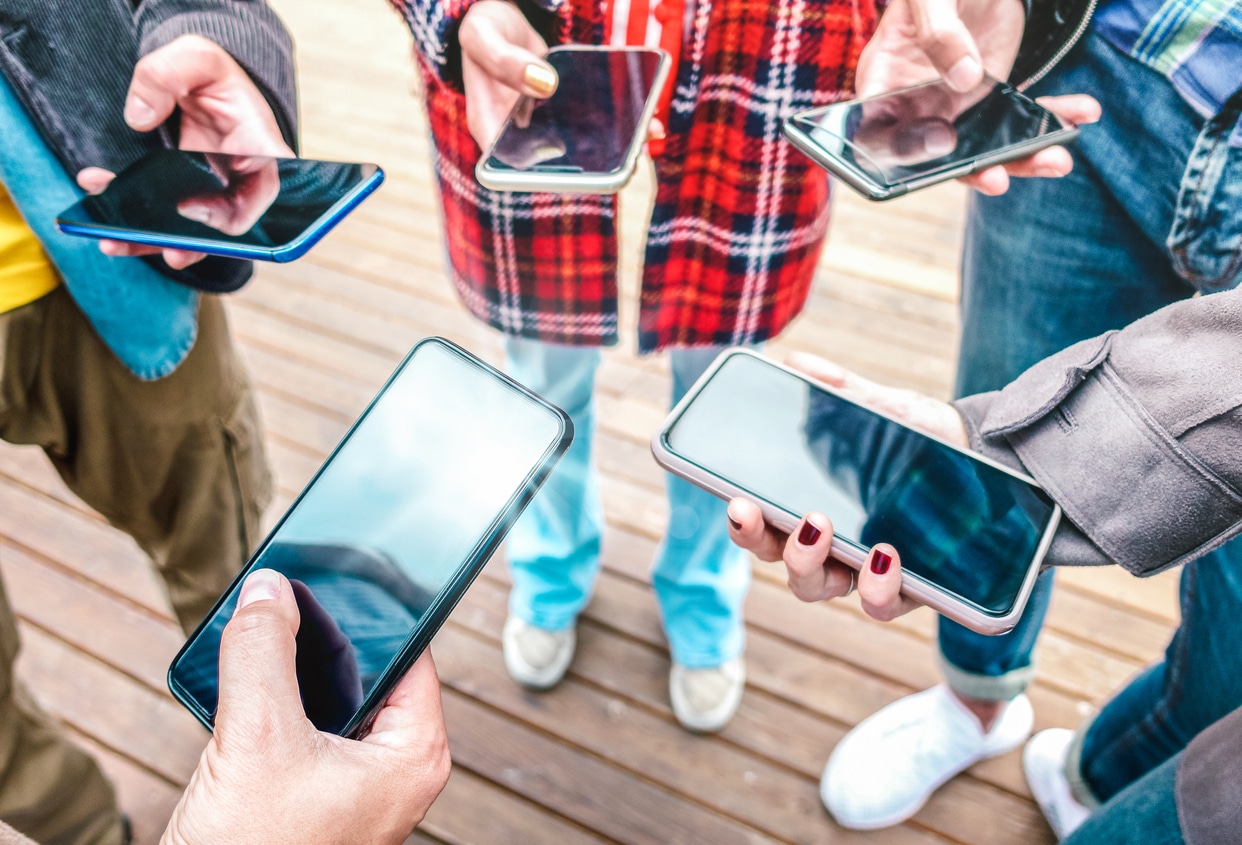We Are Addicted to Our Phones
In today’s society, a large majority of us rely on our phones to communicate, navigate, research, and entertain ourselves. With this in mind, it isn’t surprising that phone usage continues to increase each year. However, you may be shocked to learn just how addicted we are to our phones. Check out these 2022 statistics:
- 85% of U.S. adults own a smartphone as of 2022.
- The average American spends 5 hours and 24 minutes on their mobile device each day.
- On average, Americans check their phones at least 96 times per day, or once every ten minutes.
- As of 2022, there are roughly 6.65 billion smartphone users across the world. That’s 86% of the global population.
- As of 2022, 62.06% of website traffic comes from mobile devices.
If these stats alone don’t prove we have an addiction to our phones, Neuroscientists studying the effects of social media on the brain are also finding that positive interactions (such as someone liking your Instagram photo or reel) trigger the same kind of chemical reaction that is caused by gambling and recreational drugs. The “reward” of checking social media notifications releases dopamine, which makes you feel good. However, the dopamine effect only lasts for a few minutes and then you feel the need to check your phone again for the same reaction.
The constant need for us to check out phone has been liked to increased levels of anxiety, stress and depression, as well as poor quality of sleep. In addition, it also significantly increases the risk of car injury or death. Further research even shows that too much social media usage can lead to poor self-esteem, body image issues, and higher risk of suicide, especially in teenagers. It is clear something needs to change, but what exactly can be done when our society runs on technology? The answer is creating healthy phone habits.
Creating Healthy Phone Habits
- Avoid checking your phone first thing in the morning. Start your day with meditation, yoga, quietly enjoying your cup of tea or coffee, etc.
- Work on not checking your notifications constantly. Build in time to check-in every 15 minutes, then gradually push it to every 20 minutes and so forth.
- Proactively silence notifications. Not every app on your smartphone needs to send a notification. Go to your settings and actively shut them off. Put your phone on “do not disturb” so you don’t receive notifications until you are ready to look at them.
- Put your phone away when you are socializing with friends and family to avoid distractions and remain present in the current conversations.
- Avoid smartphone use while driving. Distracted driving kills roughly 3,000 Americans each year. Notify friends and family of when you are driving and that you will not be answering to avoid distracted use. Applying the “do not disturb” function on your phone can also help curb the allure of those smartphone notifications.
- Practice nighttime phone hygiene. Any type of active phone use stimulates your brain and delays REM sleep. The blue light has also been linked to reduced melatonin production. For the best sleep, put your phone away 30-60 minutes before getting into bed.
- Practice digital minimalism! This is a concept of mindfulness that encourages you to be intentional with your phone usage. When it comes to social media specifically, be active. Use the platforms to connect with others, share helpful information, inspire and motivate, or spread positivity. When the focus shifts from benefitting yourself to benefitting others, you will notice both physical and mental health benefits.
This is a topic we covered in our November edition of HD Heartbeat. If you are interested in signing up for our monthly newsletter, contact us today!



